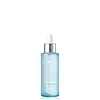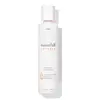What's inside
What's inside
 Key Ingredients
Key Ingredients

 Benefits
Benefits

 Concerns
Concerns

No concerns
 Ingredients Side-by-side
Ingredients Side-by-side

Water
Skin ConditioningPentylene Glycol
Skin ConditioningPropanediol
SolventNiacinamide
Smoothing1,2-Hexanediol
Skin ConditioningSodium Hyaluronate
HumectantAcrylates/C10-30 Alkyl Acrylate Crosspolymer
Emulsion StabilisingArginine
MaskingEthylhexylglycerin
Skin ConditioningPanthenol
Skin ConditioningHydrolyzed Hyaluronic Acid
HumectantAdenosine
Skin ConditioningDisodium EDTA
Sea Water
HumectantButylene Glycol
HumectantPearl Extract
AntioxidantUndaria Pinnatifida Extract
Skin ConditioningSalicornia Herbacea Extract
Skin ConditioningSargassum Fulvellum Extract
Skin ConditioningCaprylyl Glycol
EmollientHydrolyzed Collagen
EmollientHydroxypropyltrimonium Hyaluronate
Sodium Acetylated Hyaluronate
HumectantSodium Hyaluronate Crosspolymer
HumectantHydrolyzed Sodium Hyaluronate
Skin ConditioningHyaluronic Acid
HumectantPotassium Hyaluronate
Skin ConditioningWater, Pentylene Glycol, Propanediol, Niacinamide, 1,2-Hexanediol, Sodium Hyaluronate, Acrylates/C10-30 Alkyl Acrylate Crosspolymer, Arginine, Ethylhexylglycerin, Panthenol, Hydrolyzed Hyaluronic Acid, Adenosine, Disodium EDTA, Sea Water, Butylene Glycol, Pearl Extract, Undaria Pinnatifida Extract, Salicornia Herbacea Extract, Sargassum Fulvellum Extract, Caprylyl Glycol, Hydrolyzed Collagen, Hydroxypropyltrimonium Hyaluronate, Sodium Acetylated Hyaluronate, Sodium Hyaluronate Crosspolymer, Hydrolyzed Sodium Hyaluronate, Hyaluronic Acid, Potassium Hyaluronate
Water
Skin ConditioningHydrolyzed Collagen
EmollientGlycerin
HumectantPropanediol
SolventAlcohol Denat.
AntimicrobialBetaine
Humectant1,2-Hexanediol
Skin ConditioningButylene Glycol
HumectantGlyceryl Polymethacrylate
PPG-13-Decyltetradeceth-24
EmulsifyingXanthan Gum
EmulsifyingCellulose Gum
Emulsion StabilisingEthylhexylglycerin
Skin ConditioningDisodium EDTA
Beta-Glucan
Skin ConditioningHydrolyzed Lupine Protein
Skin ConditioningTocopherol
AntioxidantIngredients Explained
These ingredients are found in both products.
Ingredients higher up in an ingredient list are typically present in a larger amount.
1,2-Hexanediol is a synthetic liquid and another multi-functional powerhouse.
It is a:
- Humectant, drawing moisture into the skin
- Emollient, helping to soften skin
- Solvent, dispersing and stabilizing formulas
- Preservative booster, enhancing the antimicrobial activity of other preservatives
Butylene Glycol (or BG) is used within cosmetic products for a few different reasons:
Overall, Butylene Glycol is a safe and well-rounded ingredient that works well with other ingredients.
Though this ingredient works well with most skin types, some people with sensitive skin may experience a reaction such as allergic rashes, closed comedones, or itchiness.
Learn more about Butylene GlycolDisodium EDTA plays a role in making products more stable by aiding other preservatives.
It is a chelating agent, meaning it neutralizes metal ions that may be found in a product.
Disodium EDTA is a salt of edetic acid and is found to be safe in cosmetic ingredients.
Learn more about Disodium EDTAEthylhexylglycerin (we can't pronounce this either) is commonly used as a preservative and skin softener. It is derived from glyceryl.
You might see Ethylhexylglycerin often paired with other preservatives such as phenoxyethanol. Ethylhexylglycerin has been found to increase the effectiveness of these other preservatives.
Hydrolyzed collagen has a misleading name because it is actually a mixture of various proteins/peptides. This ingredient has skin hydrating properties.
Collagen is the most abundant type of structural protein found in your body. In your skin, it is responsible for keeping it firm and youthful.
Hydrolyzed Collagen is created by breaking up proteins into smaller peptide bonds. These peptides act as humectants and emollients.
Humectants are great at holding onto water, keeping skin hydrated. Emollients create a thin barrier on the skin to prevent moisture from escaping.
There is ongoing debate about whether hydrolyzed collagen works because it increases skin hydration. Skin hydration is also linked to elasticity and the appearance of wrinkles.
Collagen or peptide ingredients can be used in the morning or night. They will not increase sun sensitivity, but you should always wear sunscreen during the day.
According to a manufacturer, this ingredient is a great hair conditioner as well.
This ingredient can be extracted from different sources, including:
Vegan collagen is derived from yeast, bacteria, or plant sources. Vegan collagen would go by a different INCI name, such as hydrolyzed soy protein.
The results are varied.
A study from 2021 found hydrolyzed collagen increased elasticity and improved wrinkles in 1,125 participants between age 20 and 70. Another study found increased skin thickness in participants between the ages of 45 to 59.
However, It is difficult to prove that oral collagen will end up working on your skin. Many of the studies using hydrolyzed collagen also add several vitamins and nutrients into the test mixture as well.
Further studies are needed at this time.
Learn more about Hydrolyzed CollagenPropanediol is an all-star ingredient. It softens, hydrates, and smooths the skin.
It’s often used to:
Propanediol is not likely to cause sensitivity and considered safe to use. It is derived from corn or petroleum with a clear color and no scent.
Learn more about PropanediolWater. It's the most common cosmetic ingredient of all. You'll usually see it at the top of ingredient lists, meaning that it makes up the largest part of the product.
So why is it so popular? Water most often acts as a solvent - this means that it helps dissolve other ingredients into the formulation.
You'll also recognize water as that liquid we all need to stay alive. If you see this, drink a glass of water. Stay hydrated!
Learn more about Water